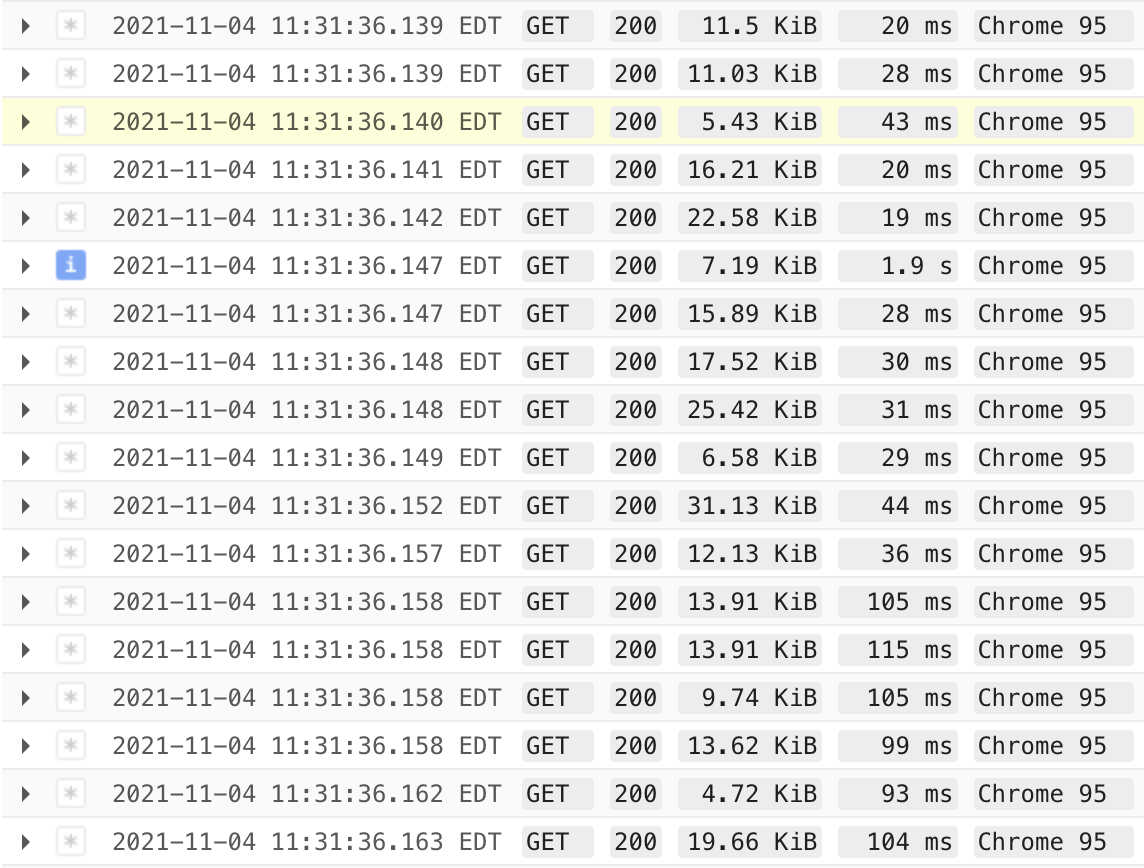Updates from the Google App Engine team (Fall 2021)
wesley c
App Engine and Google Cloud serverless users:
The App Engine team at Google Cloud had a flurry of announcements and product updates over the past few months. In case you missed them, we've summarized them here with relevant links.
New features to better secure your Google App Engine apps (Aug 2021) — Introducing a pair of networking and security features:
Egress Controls for Serverless VPC Access — consistent app (static) outbound IP address
User-managed service accounts — custom service accounts to restrict apps to only the permissions necessary, following the best practice of "least privileges"
Exploring serverless with a nebulous app (Sep 2021) — Deploy/shift the same app to App Engine, Cloud Functions, or Cloud Run without any code changes, and show how to access Cloud APIs from serverless
Extending support for App Engine bundled services (Sep 2021) — Legacy App Engine APIs/bundled services, e.g., Memcache, Datastore, etc., were left out of the next-generation service (to fight against "vendor lock-in" not because they were deprecated). Many matured into standalone products, e.g., Cloud Memorystore, Cloud Datastore, etc., respectively anyway. To help with updating language versions (e.g., Python 2 to 3, Java 8 to 11, etc.), we've added many of these bundled services "back" to the latest App Engine runtimes.
Modernizing your serverless applications (Sep 2021) — Introducing codelabs (hands-on tutorials) and new video series to help customers migrate to standalone services to modernize & make their apps more portable (second-generation App Engine, Cloud Functions, Cloud Run; Kubernetes Engine (GKE), Compute Engine VMs; other cloud, multi-cloud, hybrid cloud, on-prem, etc.):
App Engine taskqueue to Cloud Tasks (push queues)
App Engine to Cloud Run (with Docker or without Docker using Cloud Buildpacks)
More are on the way…
While we are working hard to improve your App Engine experience, recognize App Engine is no longer the only serverless option available from Google Cloud:
If you don't have an entire app, have single-function utilities or microservices, Cloud Functions is a great alternative; it also supports event-driven workloads
For those leveraging containerization as part of their app modernization or software development workflows or wish to avoid some of the constraints from App Engine or Cloud Functions, consider Cloud Run.
Both Cloud Functions and Cloud Run have similar execution profiles, are pay-per-use, deploy quickly, and autoscale as needed, just like what you're used to from App Engine. Providing a more complete serverless product suite that meets all your use cases and workloads is one of the goals of the Google Cloud serverless team.
"A computer never does what you want... only what you tell it."
wesley chun :: @wescpy :: Software Architect & Engineer
Developer Advocate at Google by day; at night: Core Python
Joshua Smith


David (Cloud Platform Support)
Hello,
Other than applying changes within your own application so it will go easy at startup, you can try using warmup requests along with tweaking the min_idle_instances element in your app.yaml, in order to reduce request and response latency during the time when your app's code is being loaded to a newly created instance.
There’s not an official way of forcing the scaling to behave like it used to be on python 2.7. However, this type of feedback can be passed to the App Engine engineering team in the form of a feature request. You can create such a feature request here. The App Engine engineering team would then evaluate it and decide whether it could be implemented or not.Nicolas Fonrose (Teevity)
George (Cloud Platform Support)
Jason Collins
Joshua Smith
--
You received this message because you are subscribed to the Google Groups "Google App Engine" group.
To unsubscribe from this group and stop receiving emails from it, send an email to google-appengi...@googlegroups.com.
To view this discussion on the web visit https://groups.google.com/d/msgid/google-appengine/150109bb-18a4-40b1-9efb-8b86bc60eceen%40googlegroups.com.
Jason Collins
Joshua Smith
Jason Collins
You received this message because you are subscribed to a topic in the Google Groups "Google App Engine" group.
To unsubscribe from this topic, visit https://groups.google.com/d/topic/google-appengine/pEi3hxX5YpE/unsubscribe.
To unsubscribe from this group and all its topics, send an email to google-appengi...@googlegroups.com.
To view this discussion on the web visit https://groups.google.com/d/msgid/google-appengine/5B04AE8B-06A4-43C3-9922-D9859BB4610E%40gmail.com.
Joshua Smith
To view this discussion on the web visit https://groups.google.com/d/msgid/google-appengine/CAL_dBebOMgXrwsxX2U3VXD%3DTxPHCDHy84vouRveb22N20Bt_Xw%40mail.gmail.com.
Jason Collins
To view this discussion on the web visit https://groups.google.com/d/msgid/google-appengine/18074444-B887-45B4-9186-12620383E631%40gmail.com.
Joshua Smith
To view this discussion on the web visit https://groups.google.com/d/msgid/google-appengine/CAL_dBeaGMy_w7AXs33mByA6yB0kmbZKR8sa_YFCc%2Bk0Mnh9f%2Bg%40mail.gmail.com.
Will Reiher
Amit Sinha
Will Reiher
Kaan
Walt Pang
--
You received this message because you are subscribed to the Google Groups "Google App Engine" group.
To unsubscribe from this group and stop receiving emails from it, send an email to google-appengi...@googlegroups.com.
To view this discussion on the web visit https://groups.google.com/d/msgid/google-appengine/ea730289-bd69-40a8-8519-31134e29d7a3n%40googlegroups.com.
Alex Martelli
And a plug: Python in my opinion is dying, while JS / NodeJS is thriving
Kaan
Matt Larkin
Sajal Gupta
Matt Larkin
--
You received this message because you are subscribed to a topic in the Google Groups "Google App Engine" group.
To unsubscribe from this topic, visit https://groups.google.com/d/topic/google-appengine/pEi3hxX5YpE/unsubscribe.
To unsubscribe from this group and all its topics, send an email to google-appengi...@googlegroups.com.
To view this discussion on the web visit https://groups.google.com/d/msgid/google-appengine/8519af42-dafe-4b44-968b-60c71917422cn%40googlegroups.com.
Sajal Gupta
I am using Flask's server as follows:
# # This is used when running locally only. When deploying to Google App
# # Engine, a webserver process such as Gunicorn will serve the app. You
# # can configure startup instructions by adding `entrypoint` to app.yaml.
app.run(host='127.0.0.1', port=8080, debug=True)
Sajal Gupta
Matt Larkin
To view this discussion on the web visit https://groups.google.com/d/msgid/google-appengine/8abd1488-60b8-443d-81ff-dcd037428b05n%40googlegroups.com.
Matt Larkin
Sajal Gupta
To view this discussion on the web visit https://groups.google.com/d/msgid/google-appengine/CA%2BGxZQvStma_3DqvFx5un5yz6%3DaFkUbHmjS%3Dsu5trQgOYXtTQw%40mail.gmail.com.
wesley c
"A computer never does what you want... only what you tell it."
wesley chun :: @wescpy :: Software Architect & Engineer
Developer Advocate at Google by day; at night: Core Python
To view this discussion on the web visit https://groups.google.com/d/msgid/google-appengine/D1F2E824-AE53-45B0-BD6E-2B582309F6A3%40gmail.com.
